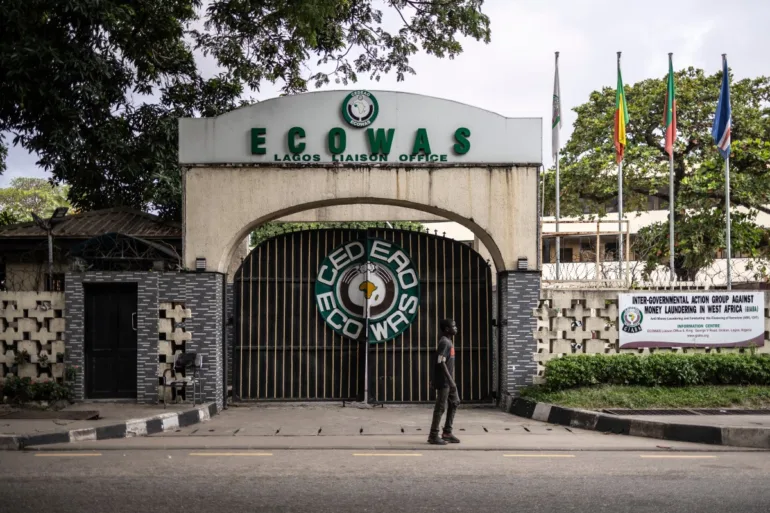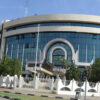West African leaders have suspended Guinea-Bissau from all ECOWAS decision-making bodies following the November 26 military coup and demanded the swift restoration of constitutional rule, warning that the takeover threatens the country’s fragile democracy.
The Extraordinary Session of ECOWAS’s Mediation and Security Council (MSC), chaired by Sierra Leone’s President Julius Maada Bio, met virtually on Thursday night. Participants included the leaders of Cabo Verde, Ghana, Liberia, Nigeria, Senegal and Sierra Leone, Côte d’Ivoire’s vice president, and senior ministers from Benin, The Gambia and Togo. Also in attendance were the heads of the ECOWAS Commission, the African Union Commission, the UN Office for West Africa and the Sahel, Guinea-Bissau’s foreign minister, and ECOWAS’s special envoy.
The MSC examined a crisis report presented by ECOWAS Commission President Omar Touray. Leaders voiced deep concern over the disruption of the electoral process and commended citizens for their “resilience and commitment to democracy” during the November 23 polls.
In a sharply worded communiqué, the MSC said it “condemns in the strongest terms the coup d’état perpetrated on 26 November 2025 and calls for the unconditional restoration of constitutional order without delay.” The bloc rejected “any arrangements that perpetuate the illegal abortion of the democratic process and the subversion of the will of the people of Guinea-Bissau.”
ECOWAS demanded that coup leaders allow the National Electoral Commission to resume its work and “proceed without delay with the declaration of the results of the elections of 23 November 2025.” It also called for the “immediate and unconditional release of all detained officials, in particular President Umaro Sissoco Embalo, as well as the electoral officials and all other political figures.”
The bloc warned that coup organisers would be held “both individually and collectively responsible for the protection of life and property of all citizens and residents of Guinea-Bissau and for the security and safety of all detainees.” It further requested that military authorities guarantee safe passage for ECOWAS and international election observers.
Invoking the ECOWAS Protocol on Democracy and Good Governance (2001), the MSC formally suspended Guinea-Bissau from all decision-making bodies until “full and effective constitutional order” is restored. A high-level mediation team led by the ECOWAS chair and including the presidents of Togo, Cabo Verde and Senegal will travel to Bissau to meet coup leaders and push for a return to democratic governance.
The communiqué urged Guinea-Bissau’s armed forces to “return to barracks and maintain their constitutional role,” and instructed the ECOWAS Stabilisation Support Mission to continue protecting state institutions. The bloc said it “reserves the right to use all options,” including sanctions, against those responsible for derailing the democratic process.
The African Union also condemned the coup and demanded President Embalo’s immediate release. The European Union echoed the call for “a swift return to the constitutional order and the resumption of the electoral process.”
Guinea-Bissau has been in turmoil since Wednesday, when soldiers detained Embalo and halted the publication of provisional election results. Senegal’s government later confirmed that Embalo had been flown to its territory “safe and sound” on Thursday.
The coup unfolded amid a closely fought race between Embalo and opposition candidate Fernando Dias da Costa, who told AFP he believes he won the election and claimed the takeover was “organised by Mr Embalo.” Embalo has denied the allegation.
Following the coup, the military appointed army chief of staff General Horta N’Tam to lead a one-year transition. “I have just been sworn in to lead the High Command,” N’Tam said after taking the oath.


